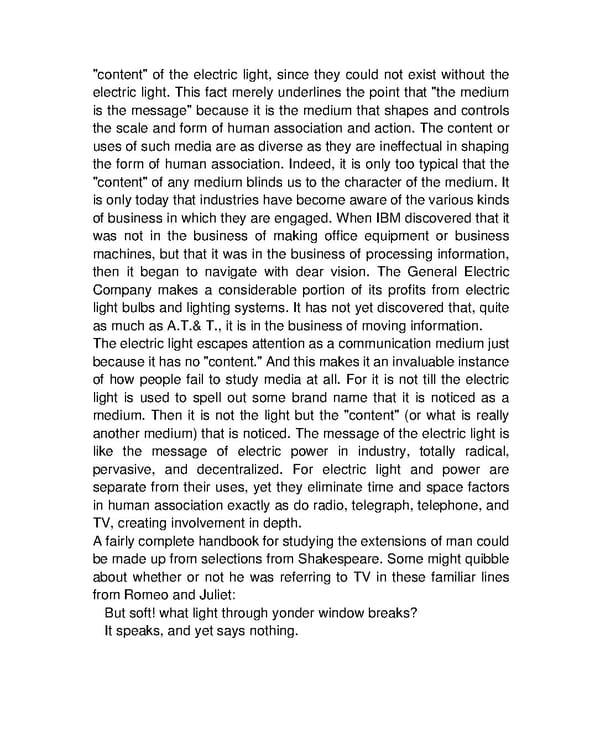"content" of the electric light, since they could not exist without the electric light. This fact merely underlines the point that "the medium is the message" because it is the medium that shapes and controls the scale and form of human association and action. The content or uses of such media are as diverse as they are ineffectual in shaping the form of human association. Indeed, it is only too typical that the "content" of any medium blinds us to the character of the medium. It is only today that industries have become aware of the various kinds of business in which they are engaged. When IBM discovered that it was not in the business of making office equipment or business machines, but that it was in the business of processing information, then it began to navigate with dear vision. The General Electric Company makes a considerable portion of its profits from electric light bulbs and lighting systems. It has not yet discovered that, quite as much as A.T.& T., it is in the business of moving information. The electric light escapes attention as a communication medium just because it has no "content." And this makes it an invaluable instance of how people fail to study media at all. For it is not till the electric light is used to spell out some brand name that it is noticed as a medium. Then it is not the light but the "content" (or what is really another medium) that is noticed. The message of the electric light is like the message of electric power in industry, totally radical, pervasive, and decentralized. For electric light and power are separate from their uses, yet they eliminate time and space factors in human association exactly as do radio, telegraph, telephone, and TV, creating involvement in depth. A fairly complete handbook for studying the extensions of man could be made up from selections from Shakespeare. Some might quibble about whether or not he was referring to TV in these familiar lines from Romeo and Juliet: But soft! what light through yonder window breaks? It speaks, and yet says nothing.
 Understanding Media by Marshall McLuhan Page 10 Page 12
Understanding Media by Marshall McLuhan Page 10 Page 12